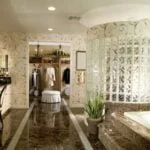Are you looking to revamp your home decor or start a new business in the home decor industry? If so, you may be wondering how to buy wholesale home decor. Purchasing home decor items in bulk can offer numerous benefits, such as cost savings and access to a wider range of products. In this article, we will explore the advantages of buying wholesale home decor and provide valuable tips on navigating the wholesale market.
When it comes to buying home decor items, understanding the wholesale market can make a significant difference in your purchasing decisions. By delving into the differences between wholesale and retail buying, you can gain insight into how to leverage bulk purchasing for maximum benefit. Additionally, researching reliable wholesale suppliers is crucial for making informed choices and securing high-quality products at competitive prices.
Budgeting plays a pivotal role in wholesale buying, and knowing how to set a budget can help you avoid overspending and maximize your investment. Moreover, negotiating with wholesalers is an essential skill for obtaining the best deals and pricing options. In the following sections of this article, we will delve into these topics in more detail, providing practical strategies for success in buying wholesale home decor.
Understanding the Wholesale Market
When it comes to buying home decor items, understanding the wholesale market is crucial. Wholesale buying differs significantly from retail buying in several aspects. While retail buying involves purchasing products directly from a retailer for personal use, wholesale buying involves purchasing products in bulk from manufacturers or distributors at a discounted price for resale.
One of the main benefits of wholesale buying is the opportunity to save money. When you buy wholesale home decor, you can purchase a large quantity of items at a lower cost per unit, allowing for a higher profit margin when reselling these items. Additionally, buying wholesale provides access to a wide variety of products and styles that may not be available through retail channels.
In order to buy wholesale home decor successfully, it’s important to understand the requirements and qualifications involved in wholesale purchasing. Most wholesalers require buyers to have a valid business license or resale certificate in order to establish that they are purchasing items for resale purposes. By understanding these differences between wholesale and retail buying, individuals can make informed decisions on how to buy wholesale home decor effectively.
| Benefits of Wholesale Buying | Differences Between Wholesale and Retail Buying |
|---|---|
| Save money by purchasing in bulk | Retail: Purchasing for personal use; Wholesale: Purchasing for resale |
| Access to a wide variety of products and styles | Wholesale requires business license or resale certificate |
Researching Wholesale Suppliers
When it comes to buying wholesale home decor, one of the most crucial steps is researching and finding reliable wholesale suppliers. Here are some tips on how to find the best wholesale home decor suppliers for your business:
- Trade Shows and Expos: Attend trade shows and expos that specialize in home decor to connect with potential wholesale suppliers. These events are excellent opportunities to meet with multiple suppliers, see their products firsthand, and establish relationships.
- Online Directories: Utilize online directories such as Alibaba, Global Sources, or ThomasNet to search for wholesale home decor suppliers. These platforms allow you to filter results based on your specific criteria and compare different suppliers side by side.
- Networking: Tap into your professional network within the home decor industry to gather referrals and recommendations for reputable wholesale suppliers. Sometimes, word-of-mouth referrals can lead you to hidden gems in the wholesale market.
Once you have compiled a list of potential wholesale suppliers, it’s essential to vet them thoroughly before making any commitments. Look for companies with a strong reputation, positive customer reviews, and a track record of reliability. It’s also a good idea to request samples of their products to assess the quality before making a large purchase.
In addition to evaluating their product quality and reputation, consider their pricing structure, minimum order requirements, and payment terms. By doing thorough research and due diligence upfront, you can ensure that you’re partnering with trustworthy wholesale suppliers for your home decor business.
Remember that finding reliable wholesale home decor suppliers is not only about getting the best price but also about establishing long-term partnerships built on trust and mutual benefit.
Budgeting for Wholesale Buying
Understanding the Financial Aspects
When considering <strong>how to buy wholesale home decor, it’s essential to first understand the financial aspects involved. Buying in bulk can often lead to significant cost savings compared to retail prices, but it also requires a substantial initial investment. You’ll need to consider factors such as the upfront cost of purchasing wholesale products, potential shipping and handling fees, as well as any additional expenses associated with storage or inventory management.
Setting a Budget
One of the key steps in budgeting for wholesale buying is setting a clear budget based on your business needs and financial capabilities. Start by determining how much money you can allocate towards purchasing wholesale home decor items without compromising other aspects of your business. Consider factors such as projected sales volume, expected profit margins, and any potential risks or unforeseen expenses that may arise during the sourcing and selling process.
Tracking Expenses
Once you’ve established a budget for buying wholesale home decor, it’s crucial to track your expenses accurately. Keep detailed records of all costs associated with purchasing, storing, and shipping wholesale products. This will help you monitor your spending patterns, identify any potential areas for cost-saving measures, and ensure that you’re staying within your predetermined budget constraints.
By understanding the financial aspects and setting a clear budget for wholesale buying home decor items, you can make strategic decisions that will ultimately benefit your business in the long run.
Negotiating With Wholesalers
When it comes to buying wholesale home decor, negotiating with wholesalers is an essential skill to master in order to get the best deals and prices. By honing your negotiation skills, you can save a significant amount of money and increase your profit margins. Here are some strategies for negotiating with wholesalers effectively:
Do Your Research
Before entering into negotiations with wholesalers, it’s crucial to do your research. Understand the market value of the home decor products you’re interested in purchasing, as well as the typical wholesale and retail prices. This knowledge will give you leverage during negotiations and allow you to confidently push for better deals.
Build a Relationship
Building a strong relationship with wholesalers can be beneficial when it comes to negotiating prices. Establishing trust and rapport can make them more willing to work with you on pricing and offer you more competitive rates. Additionally, loyal customers often receive preferential treatment, such as access to exclusive deals and discounts.
Be Flexible
Flexibility is key when negotiating with wholesalers. Instead of solely focusing on lowering the price per unit, consider other aspects that can add value to the deal, such as extended payment terms, reduced shipping costs, or free accessories or samples. Being open to various negotiation points can lead to a mutually beneficial agreement for both parties.
By mastering these strategies and consistently seeking out opportunities for better deals, you can maximize your purchasing power and ultimately grow your business through wholesale home decor procurement. With dedication and practice, negotiating with wholesalers can become a valuable skill that sets you apart in the competitive market of home decor retail.
Making Informed Purchasing Decisions
When buying wholesale home decor, it’s crucial to make informed purchasing decisions to ensure that you are getting the best products for your business. One of the first steps in this process is to research current trends in home decor and understand what products are in demand.
This will help you determine which items to purchase in bulk and which ones may not be as popular. Additionally, consider your target market and their preferences when selecting products, as this will help you make choices that align with your customers’ needs.
Another important aspect of making informed purchasing decisions is understanding the quality of the products you are buying. It’s vital to choose reputable wholesale suppliers that offer high-quality home decor items. Look for suppliers who have a track record of providing top-notch products and who have positive reviews from other businesses. By doing so, you can ensure that the items you purchase meet your standards and will satisfy your customers.
Finally, consider the quantities of each product that you need to buy when purchasing wholesale home decor. This involves analyzing your sales data and forecasting future demand for certain items. By understanding your sales trends and customer preferences, you can better estimate how much inventory to purchase. It’s also important to find a balance between buying in large quantities to get better prices and avoiding overstocking on items that may not sell as quickly.
| Decision Making | Quantity |
|---|---|
| Research current trends | Analyze sales data |
| Choose reputable suppliers | Estimate future demand |
| Consider customer preferences | Avoid overstocking |
Shipping and Logistics
When buying wholesale home decor, one crucial aspect to consider is the shipping and logistics involved in getting your products from the supplier to your business. Understanding this process is essential for smooth operations and customer satisfaction. Here are some important points to consider when it comes to shipping and logistics:
- Shipping Options: When buying wholesale, it’s important to consider the different shipping options available. Whether it’s through a freight forwarder, air freight, or sea freight, understanding the pros and cons of each option can help you make informed decisions based on your budget and timeline.
- Delivery Timeframes: Another vital factor to consider is the delivery timeframes offered by the wholesale supplier. Be sure to discuss and negotiate delivery timelines that align with your business needs and customer demands.
- Customs and Import Regulations: If you’re sourcing wholesale home decor internationally, it’s crucial to be aware of customs and import regulations. Familiarize yourself with any applicable taxes, duties, or restrictions to avoid any surprises or delays in receiving your shipments.
In addition to these considerations, it’s also important to establish clear communication channels with your wholesale suppliers regarding tracking information, potential delays, and any special handling instructions for your shipments. By staying informed about the shipping process, you can better manage expectations for both yourself and your customers.
Ultimately, understanding the shipping and logistics process when buying wholesale home decor can help streamline operations and ensure a positive experience for both you as a buyer and your end customers. By taking the time to research shipping options, delivery timeframes, customs regulations, and maintaining clear communication with suppliers, you can navigate the logistical aspects of wholesale buying effectively.
Building Successful Relationships With Wholesalers
In conclusion, buying wholesale home decor can be a profitable and rewarding endeavor for those looking to start or expand their business. By understanding the differences between wholesale and retail buying, researching reliable suppliers, budgeting effectively, negotiating with wholesalers, making informed purchasing decisions, managing shipping and logistics, and building strong relationships with wholesalers, individuals can set themselves up for long-term success in the home decor market.
One of the most important aspects of buying wholesale home decor is developing and maintaining strong relationships with wholesale suppliers. Building trust and open communication with suppliers can lead to better deals, more favorable terms, and access to a wider range of products. Finding suppliers that share your values and goals can also contribute to a successful partnership in the long run.
Further educating oneself on how to buy wholesale home decor through research and seeking advice from industry experts can also help navigate the complexities of the wholesale market. With careful planning, strategic decision-making, and a commitment to fostering positive relationships with wholesalers, individuals can thrive in the competitive world of home decor retail.
Frequently Asked Questions
How Do I Start a Home Decor Business?
Starting a home decor business requires careful planning and research. Begin by defining your target market, creating a business plan, and securing any necessary permits or licenses. Then, source high-quality products, build an attractive website, and establish a strong social media presence to attract customers.
How to Start Selling Home Decor Items?
When starting to sell home decor items, it’s important to first identify your niche or target market. Research trends and popular styles to determine what products to offer. Create an appealing online storefront on platforms like Etsy or Amazon, and utilize social media to promote your products and engage with potential customers.
What Is the Profit Margin on Home Decor?
The profit margin on home decor can vary depending on factors such as the cost of goods sold, pricing strategies, and operating expenses. Generally speaking, many home decor retailers aim for a profit margin between 50-60%. To achieve this, it’s crucial to carefully manage costs while offering unique and desirable products that justify higher prices.

I’m thrilled to be your companion on this exciting journey through the world of home decor and design. With a passion for turning houses into homes and a keen eye for the finer details, I’m here to help you transform your living spaces into beautiful, functional, and meaningful havens.





